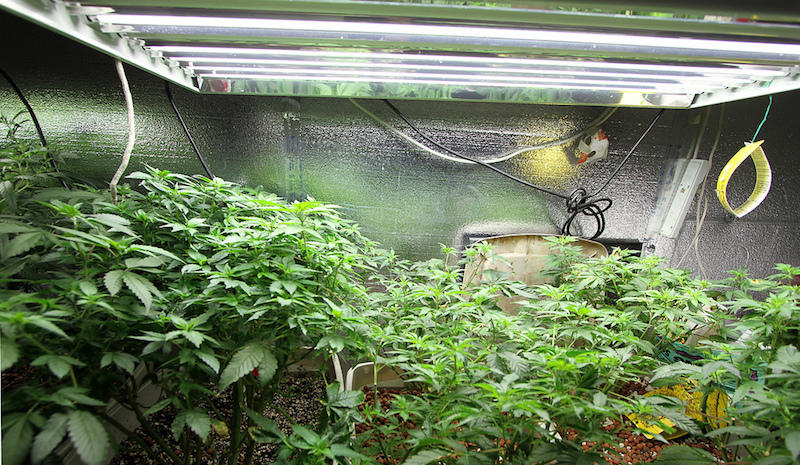If Michigan voters give recreational marijuana use the high sign this fall, it’ll bring both opportunity and risk like few businesses have seen, say local legal experts who represent medical cannabis growers.
The state, still struggling to shape policy for medical marijuana use, will let voters decide during the Nov. 6 general election whether using cannabis recreationally should be legal.
“Think if Michigan, for the first time, allowed restaurants,” said Alex Leonowicz, an attorney with the Howard and Howard law firm in Royal Oak. “It’s wide open. You can be on the ground floor of an emerging industry. You only get those opportunities once in your life.”
“Sometimes, it feels like the (California) Gold Rush,” Sobczak said. “There’s just people running toward the hills.”
California had an estimated 400,000 medical users prior to allowing recreational use Jan. 1.
“When you factor in the idea recreational probably is coming this year, that sweetens the pot for folks,” Mains said. “The potential market goes from 280,000 to 10 million.”
Honigman client Coalition to Regulate Marijuana Like Alcohol, which pushed to get recreational marijuana use on the ballot, projects annual revenues of $100 million in Michigan, if the measure passes, Mains said.
But attorneys are warning clients that they can put themselves in jeopardy by cashing in on cannabis.
The biggest danger is that even if recreational marijuana use becomes legal under state law, federal authorities still can charge producers and users. That can bring fines and/or incarceration.
The risk isn’t limited to businesses and individuals in the industry.
“If you’re just a landlord who knows someone is using your facility for a criminal enterprise, that’s a 20-year felony,” Mains said.
A tug of war within the federal government about how to treat medical marijuana users has made things more uncertain.
President Donald Trump’s Administration has opposed legalized cannabis. But in March, Trump signed a spending bill including an updated version of the Rohrabacher-Blumenauer Amendment. It prohibits the use of Department of Justice funds to go after the medical marijuana industry, if state rules are followed.
“We’ve seen a general shift from the federal government — more relaxation,” Leonowicz said, estimating that it may be five to seven years before the federal government legalizes marijuana use.
“You run a little bit more risk,” he said. “They could absolutely be arrested for violating the Controlled Substances Act.”
Neither medical nor recreational cannabis users in Michigan are protected from being fired by companies with zero-tolerance policies, Leonowicz said.
For business owners who want to enter the cannabis space, the list of potential challenges doesn’t end with federal fines or incarceration.
They’ll have to jump through a specific set of state and local hoops to start an operation and stay in business, said Barton Morris, founder of the Royal Oak-based Cannabis Legal Group. Morris is hosting a business expo Oct. 11 at Cobo Center to provide instruction for potential industry players.
“If they don’t maintain regulatory compliance, they’re going to lose their license,” Morris said.
For the first two years after the state gets its recreational cannabis program up and running, those licenses would be limited to entities already possessing a medical marijuana license. Small players — with no more than 150 plants — would be exempt from having to have a medical license.
To get a license, a company first would need a suitable production or sales facility in a community that allows such operations, Morris said.
“The majority of communities in the state are not participating,” he said. “We’re going to give instruction (at the expo) in how to talk these cities into participating.”
Finding the proper location in a participating community also is key, he said.
“Cities are supersensitive about zoning,” Morris said. Cultivation operations typically must be in industrial or agricultural zones and an established distance from schools, parks and churches.
The economics of starting a medical or recreational cannabis production operation also present a challenge, Morris said.
“All of these operations require a significant amount of capital — potentially millions of dollars,” he said. “The equipment itself, that’s going to be several hundreds of thousands of dollars.”
It could take a year to get through the license application process, Morris cautions. Then, plants will need time to grow before they begin to generate income.
Businesses also will have to deal with IRS code Section 280e, which prohibits the deduction of normal business expenses — other than the cost of goods sold — by enterprises dealing in controlled substances. Businesses can have tax rates of 70 percent or higher.
“This tax is really painful to people,” Sobczak said. “It kills operating margins.”
To prevent money laundering, the IRS tends to keep a closer eye on cash businesses, Morris said.
“All of these businesses can expect an IRS audit in three to five years,” he said. “That’s what we’ve seen in other states.”
Cannabis businesses also face intellectual property issues, since national brand protection is provided by the U.S. government. It doesn’t recognize cannabis operations as legitimate.
“Even if you’ve been a caregiver growing a specific type of marijuana for five years, you haven’t been able to trademark it,” Sobczak said.
Businesses are trying to get around that by using state-by-state intellectual property protection, Leonowicz said.
Cannabis businesses also face several other hurdles, Leonowicz said. They include:
- Limited access to capital, since banks typically shy away, based on legal concerns;
- Difficulty in getting required insurance, with only a handful of participating underwriters nationwide;
- Opposition from community residents who disapprove of the business; and
- Lack of understanding of their own product.
“People think just throw up some lights, water the plants and it will go,” Leonowicz said. “You’re going to have a terrible product you’re not going to sell and get a reputation for having inferior cannabis.”
Despite those challenges, and the fact the state’s medical marijuana rules are under constant revision, entrepreneurs aren’t backing away, attorneys said.
“The more sophisticated investors have thought through these issues and, nonetheless, they’re willing to push forward,” Rogalski said. “This is not an industry for the timid.”
Mains estimated his firm gets four to five calls a week from potential cannabis clients, while Rogalski said companies seeking information about the industry frequently call him.
Added Leonowicz, “I get multiple phone calls a day from individuals interested in getting into the cannabis space itself, or working with cannabis facilities. I’d even go as far as to say my phone rings all day.”
As with the Gold Rush, when taverns and pick-and-shovel sellers raked in their share of the profits from prospectors, the recreational cannabis industry is expected to support many ancillary businesses.
“The big one we see is real estate,” Mains said. “Suddenly, a piece of property that may have been a vacant factory two years ago, its price has now quadrupled.”
Specialized lighting or greenhouses targeted at grow operations are a few of the products on display at conventions, he said.
There’s also money to be made as a secure transporter, Mains said. Michigan’s medical marijuana law requires them when taking the product from growers to processing facilities, he said.
Home delivery services — operational in other states and now being considered by Michigan regulators — and developers of software that can handle online orders are other possible businesses, Leonowicz said.
“Accountants, attorneys — those are all individuals that are going to be in demand, especially in an industry that’s so heavily regulated,” he said. “You’re going to need someone to assist you along the way.”
Business people seem to be drawn to the cannabis industry by two factors: the ability to build wealth and a desire to bring about social transformation, Sobczak said.
“There will be, absolutely, the marijuana winners of the universe and their grandkids will do well,” he said. “(But) I think a lot of people are doing this because they feel like they’re part of a good thing and a good change.”
Credit: http://www.crainsdetroit.com










